After the release of the IGCSE® exam results, I got 6A* 1A. I have some tips to ace the IGCSE exams, such as having great study planning skills.
You need to be productive, diligent and self-disciplined in order to study well and get your desired results.
Today, I am going to share some tips for studying well and getting more A* in your IGCSE exams. Follow me!
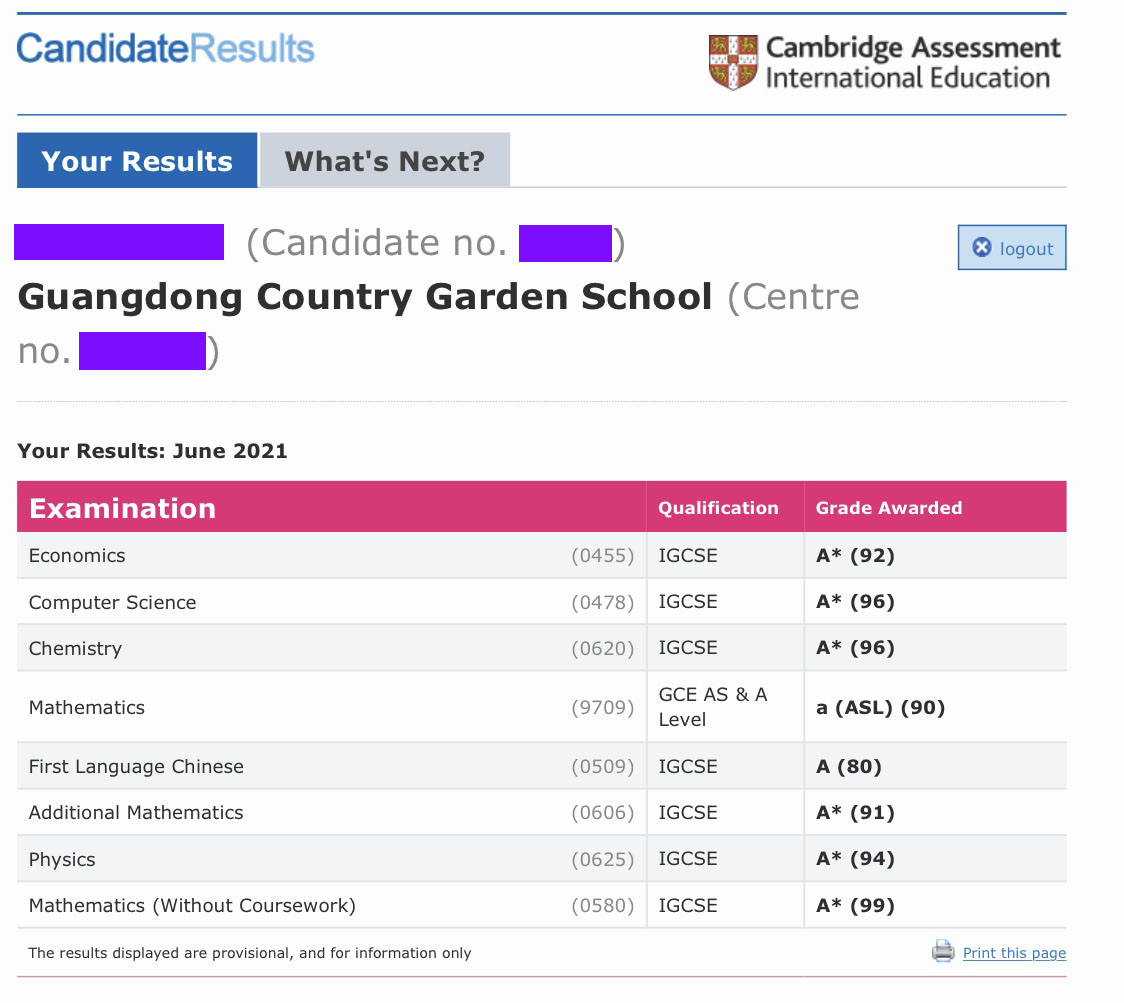
My IGCSE Results (June 2021)
Find Motivation to Study
In order to study well and get awesome results on your exams, you firstly need to find some motivation to study.
There are many useful purposes for studying, including:
- Laying foundations for future study and careers;
- Developing your thinking and problem-solving skills;
- Being knowledgeable;
- Explaining some phenomena in real life.
For example, Physics (0625) uses some mathematics knowledge, like finding angles of incidence and refraction using the "sin" function.
Discover and Share Knowledge in Real Life
Knowledge can be applied in real life. So, one of my study methodologies is to discover and share knowledge in real life, especially when we are travelling and relaxing outside.
As early as when I was in Grade 8 in my junior high school, I started applying knowledge in real life. The first knowledge I have discovered is Physics knowledge d=vt, where d is distance, v is velocity and t is time.
For example, while I was swimming in a pool, I have discovered Evaporation and Specific Heat Capacity of Water (H2O) (4.2 ⨯ 103 J / (kg · °C)). That's why we get cold after exiting the swimming pool.
During my IGCSE study journey, I also made some knowledgeable desktop background images.

My Knowledgeable Desktop Background (Physics, 2021)
More importantly, after discovering a knowledge point, I also teach others and share it on social media.

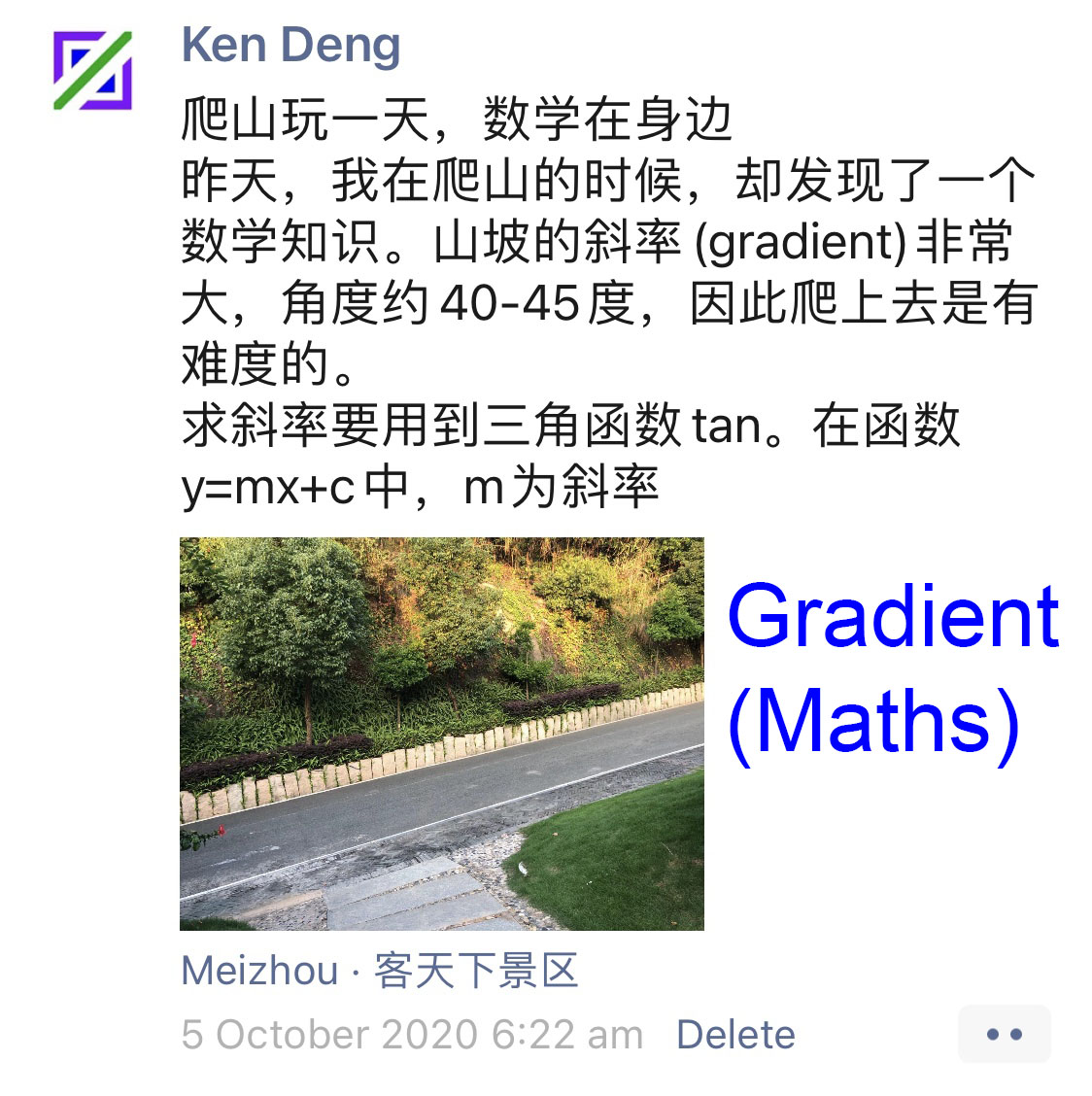
Sharing Knowledge on WeChat Moments (Chinese, 2019-2020)
Set your Study Plan and Goals
My second tip for you is to set your study plan and goals.
After setting your aims, you will have the ambition and motivation to strive towards your terminals.
Final Goals
Your final goals can be how many A*s, 'A's and/or 'B's you want to get in your IGCSE exams, what result you want to obtain at your school's mock exams, and so on.
It can be your goals for the whole IGCSE grade, your first academic year, this month, this semester, and so on.
For example, during my IGCSE study, I have set my final goal of getting 5A* 2A for my IGCSE exams.
You can write down your final goals on a piece of paper or your Notes app. Then you can mark ticks once you achieve them.
Daily Goals
Achiving your final goals can be a steep climb, so your final goals can be split into thousands of daily parts, which looks like integration in A Level mathematics (9709).
For instance, one of my daily goals in my IGCSE grade was to firmly memorise today's knowledge points.
As well as your IGCSE exam, some of my goals were also applicable to IELTS and other exams.
Daily Goals Checklist
After you have set your daily goals, you will need to take action and track your status, or they will not be useful.
In order to ensure I can achieve my daily goals, I have been using my daily goals checklist since 2020.
You can draw a table on a piece of paper or your notes app, including dates and your goals. At the end of each day before sleeping, you can mark ticks (✔) and crosses (✘) on the table.
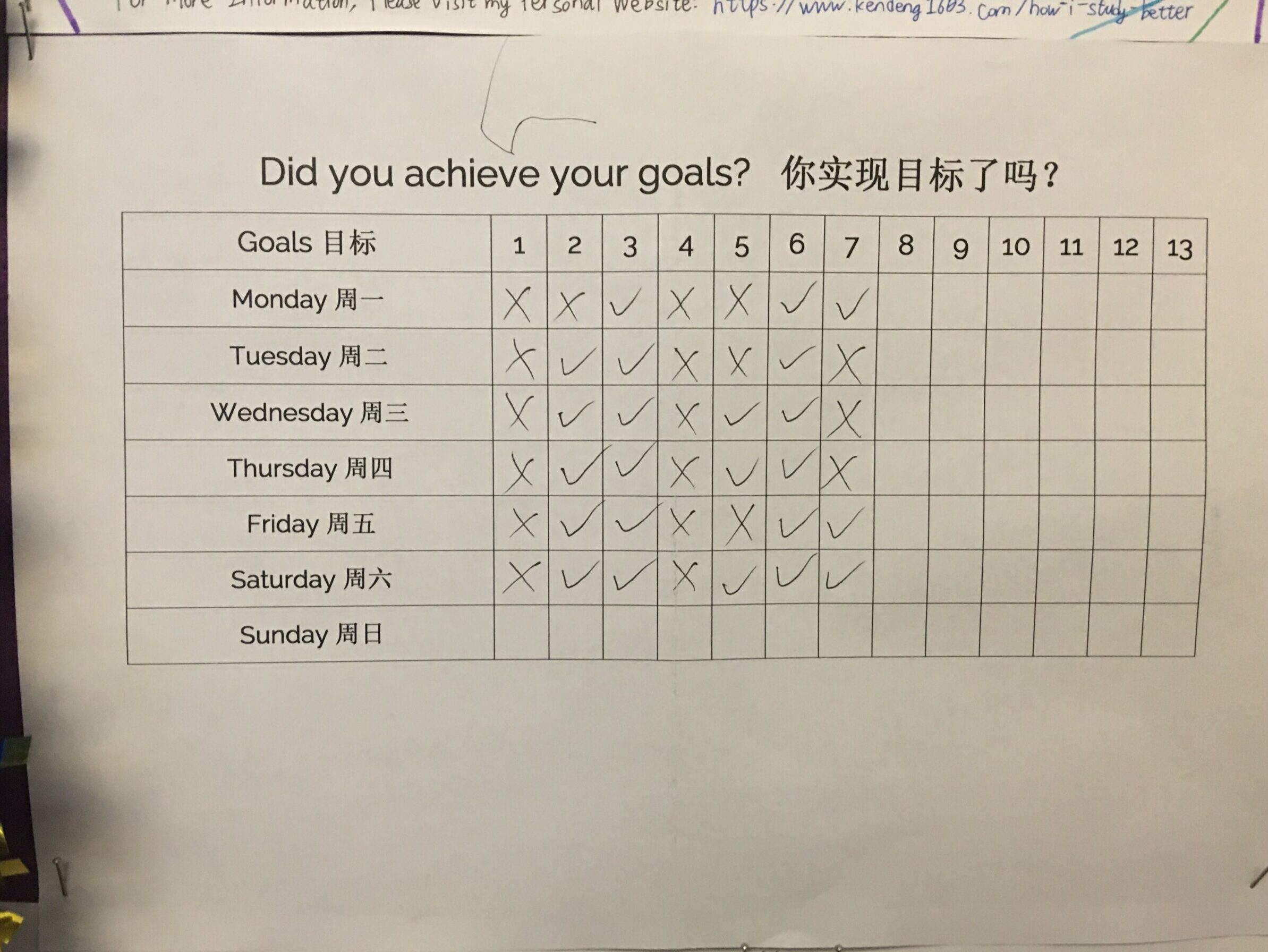
My 2020 Daily Goals Checklist (Paper-based)
Improve your Time-management Skills
The third tip is to improve your time-management skills.
You need to manage your limited time wisely and reduce procrastination. Procrastination is to delay or postpone a task you need to do now into a future date like tomorrow.
So, how can we boost our time-management skills and utilise our time wisely?
Well, I will introduce some of my methodologies to be self-disciplined.
Use Daily Tasks List
A useful planning technique is to create some daily tasks lists. Some people call it Calendar Blocking.
By creating a tasks list for the day, you will only do the things you need to do to avoid distractions.
I have been using this methodology for almost a year, which has significantly improved my productivity.
Setting up a tasks list is not a difficult task. You just need a piece of paper or your notes app to write down the tasks to do later.
You need to write down the time ranges and then allocate your tasks. You can make your tomorrow's tasks list at the end of the day before sleeping.
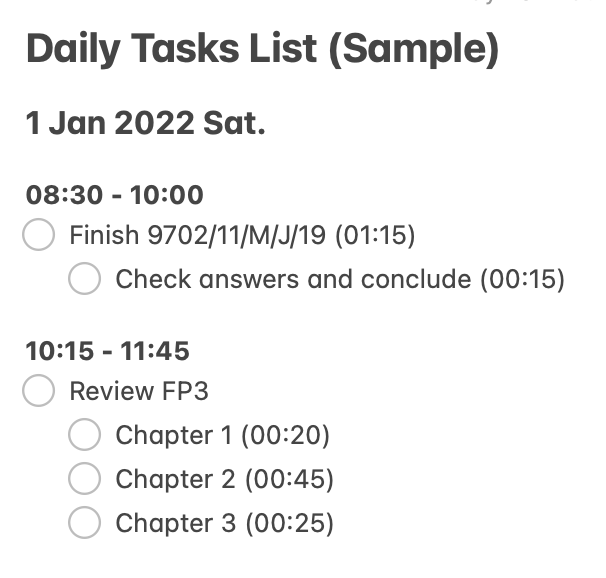
My Tasks List (Sample)
Learn MoreReduce Procrastination and Avoid Excuses
You also need to avoid finding excuses for not doing your tasks, such as feeling tired, bored or having no interest. At least you can try to start doing your tasks.
I recommend you finish your tasks on time. No matter what their deadlines are, you always need to complete your tasks.
If you cram or leave too many tasks until deadlines, you will rush to make your projects finished. This will lower the quality of your projects and hence they will become less effective in your exams.
Reduce procrastination and don't delay your today's tasks. You will have a sense of achievement by finishing all tasks today.
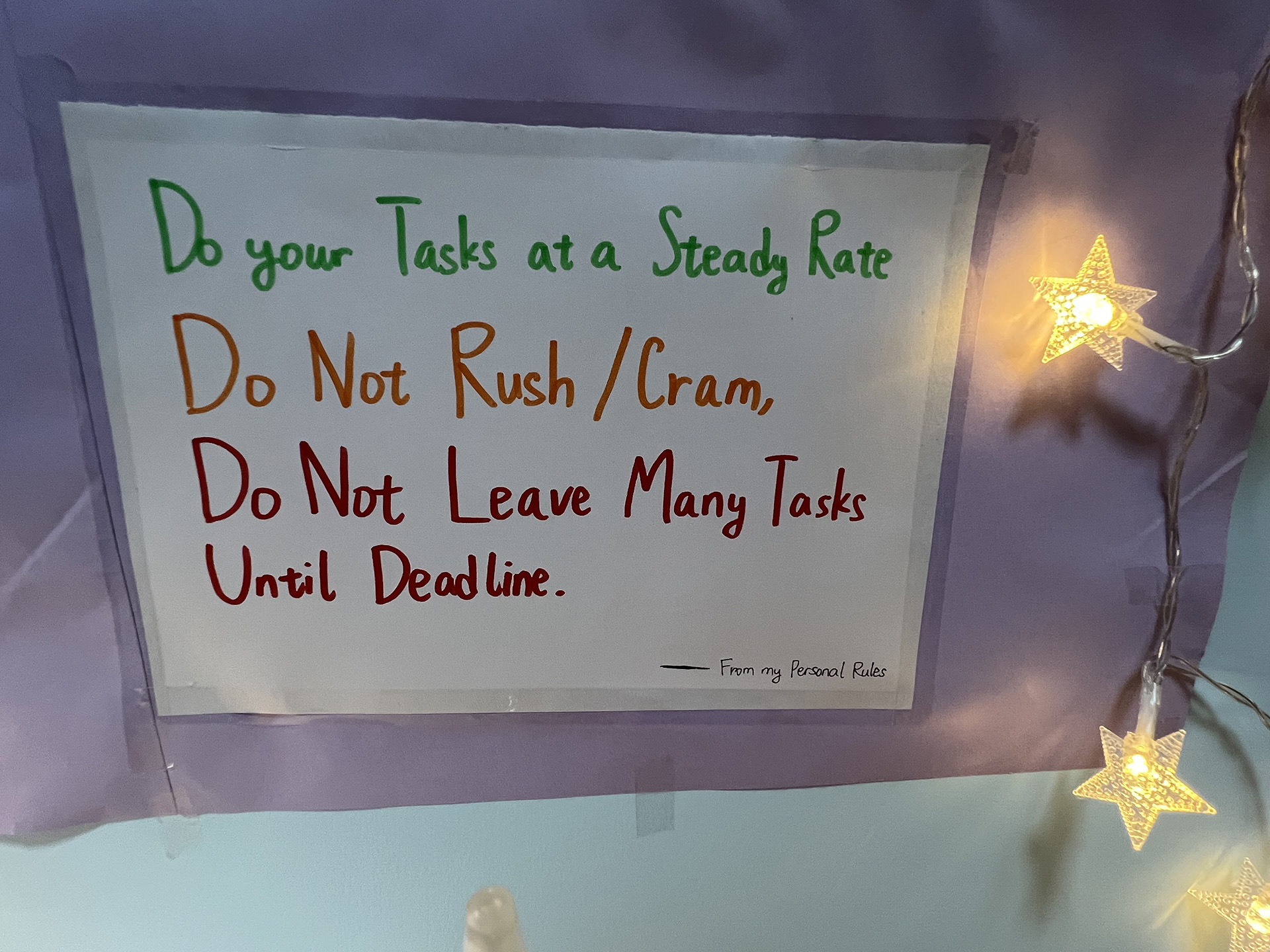
The Reminder Poster in My School Apartment Bedroom
Use Ken's Study Planner
In 2021, I made my study planner online tool with my programming knowledge, as I am a Computer Science student.
My Study Planner contains daily goals checklist with monthly summaries, projects and events managers, schedules and lessons managers, and checklists.
I use my Study Planner as my Daily Goals Checklist because it automatically calculates my goals achievement rate in a month.
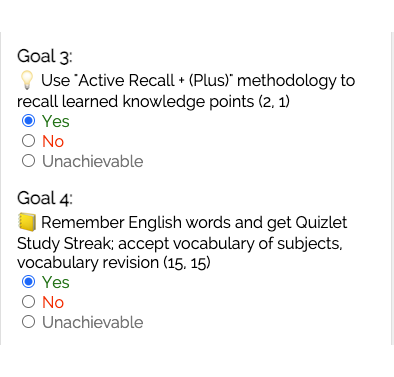
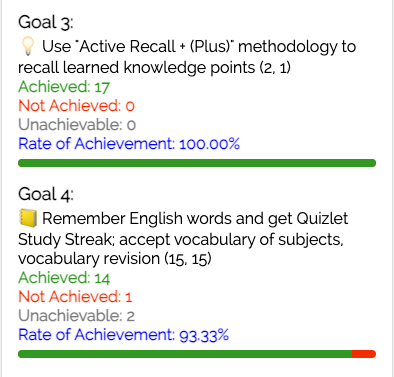
Filling Goals and Monthly Summary on Study Planner
An important feature is that the planner shows how many days are left until the next exam or event on its Home Page.
The boxes will turn orange when there are less than 7 days left, and turn red when there are less than 3 days left.
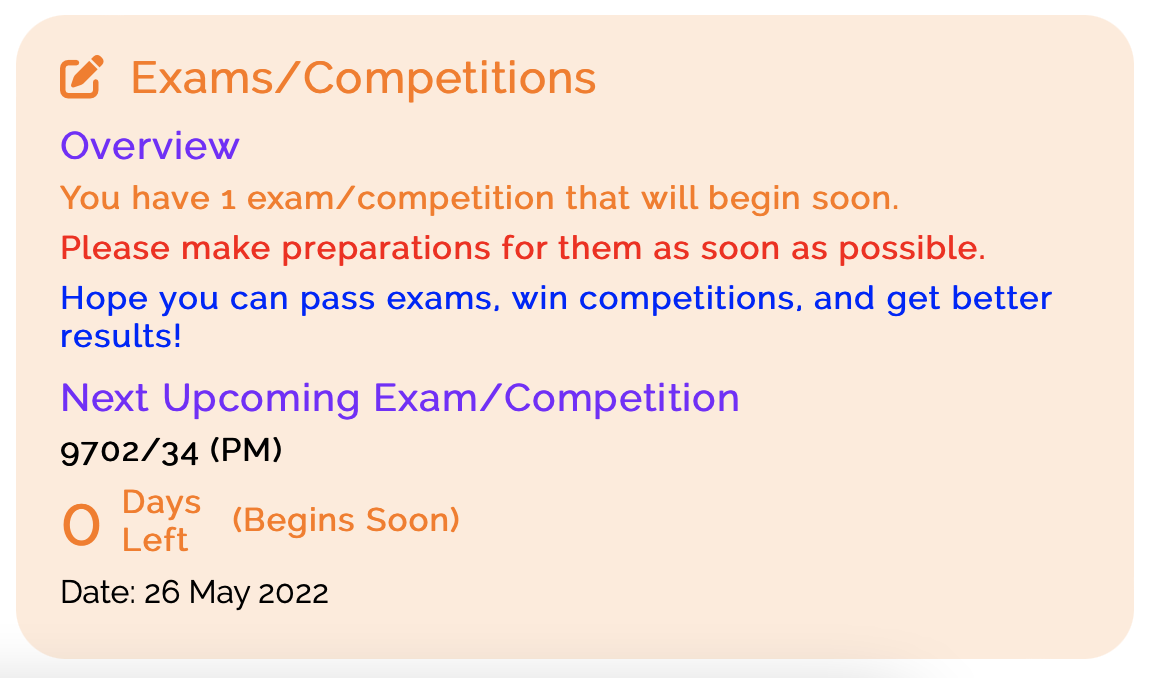
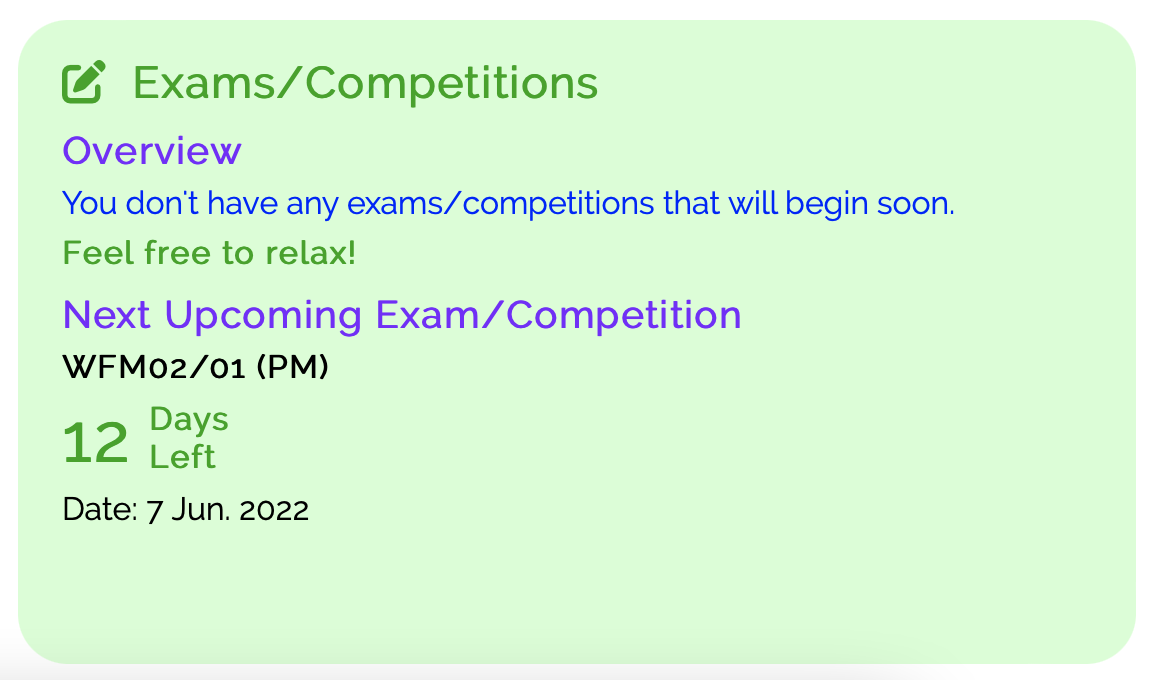
Days Left on Study Planner
If you are interested in, you can sign up for free* and start making your study plans.
Learn More Sign Up (Free)* Note: My resources and apps are Completely Free since I always make and share my resources and tools in my free time.
Review Syllabuses
Then you need to review the syllabuses of your subjects before practising past papers.
CAIE international exams have syllabuses which illustrate the knowledge points to be tested in the exams.
You can download and use the syllabuses to recall each knowledge point, finding out your missing knowledge points.
The subject syllabuses are directly available on the official website. You can type "https://www.cambridgeinternational.org/0580" on your browser (where you can change "0580" to your subjects' syllabus code like 0625, 0620, 0478), scroll down and download the syllabus PDF file.
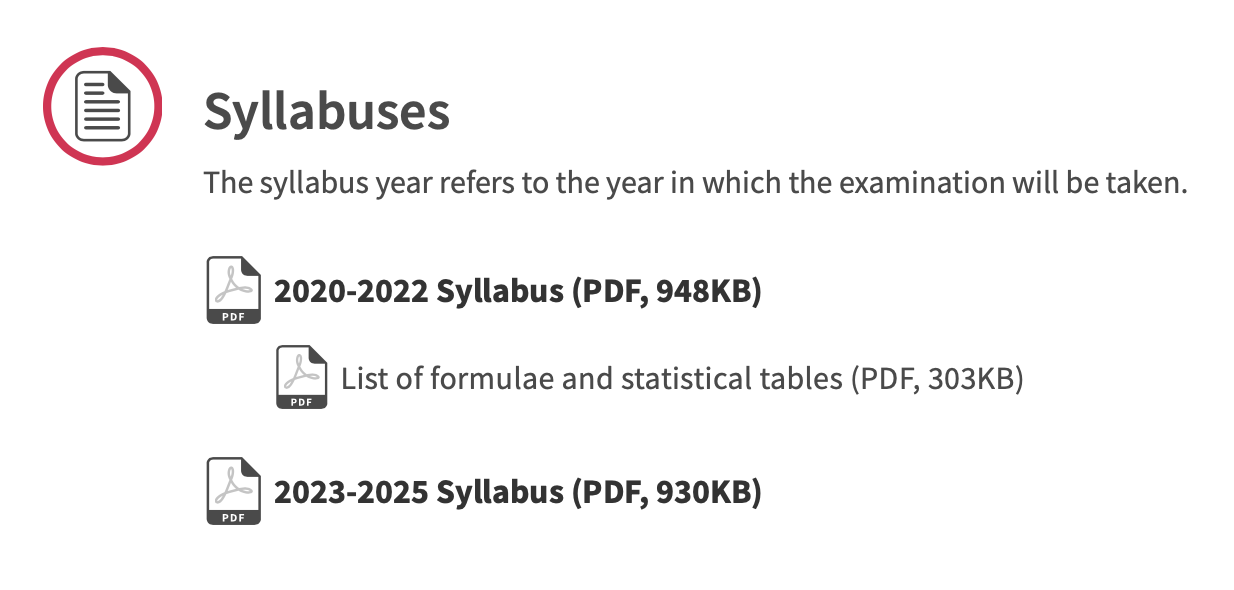
After reviewing the syllabuses, you can then review your missing knowledge points.
Test your Classmates
Another useful study tip is to test your classmates, which can help you remember knowledge firmly.
For example, in my dorm room, I read my textbooks and ask some questions to my classmates, like "What is the definition of 'DoS Attack'?" on Computer Science (0478).
Then, we can test each other to actively recall the knowledge. Here is an example (A Level Physics):
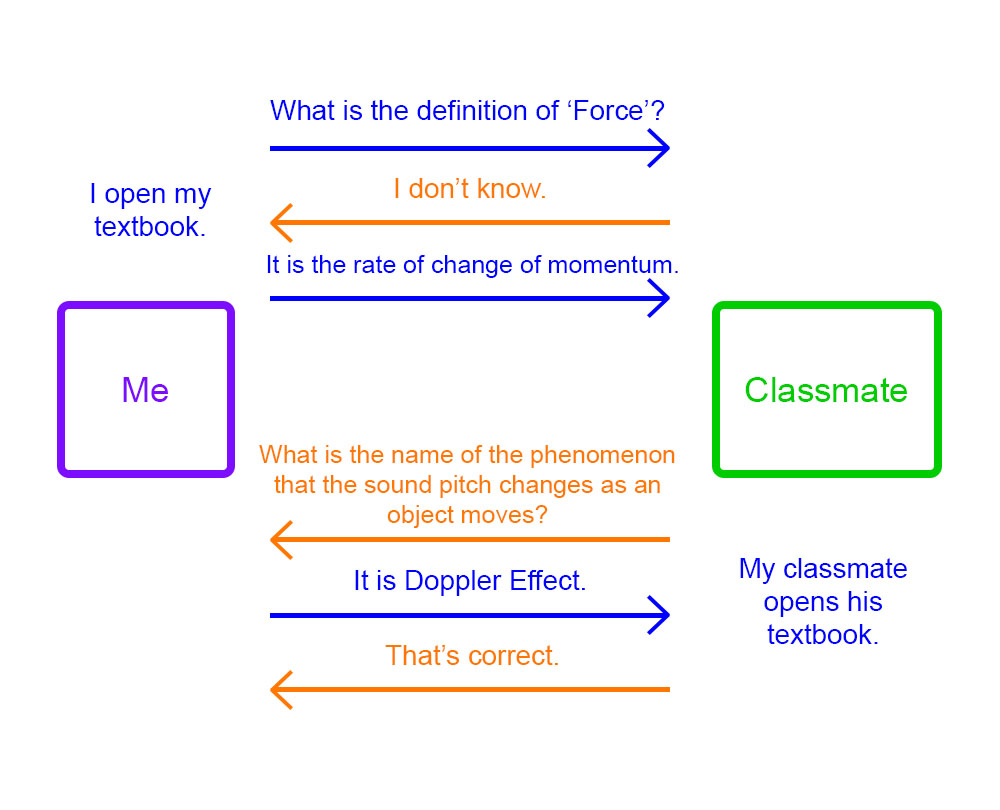
Test Classmates with A Level Physics (9702, Sample)
Make some Practice Papers
As well as testing my classmates, I also make some exam-style question papers to express my questions in a written form and test my classmates.
By making some question papers, you also can enjoy the style of the question papers from the perspective of question makers.
Even if the answers and/or questions may be incorrect or inaccurate, this is a studying process and they can be corrected as we review the relevant knowledge points.
For example, since I am a Computer Science (0478) student, I made a question paper for my classmates.
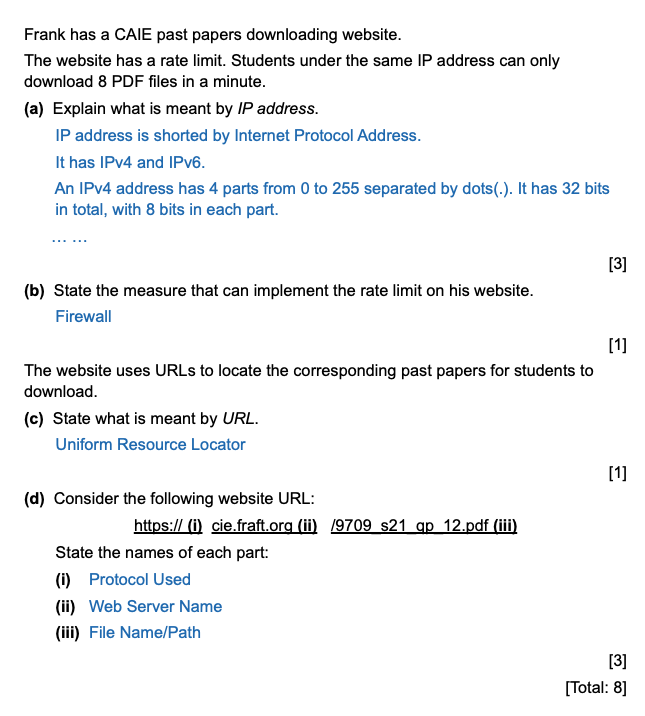
Part of My IGCSE Computer Science (0478) Practice Questions
Practise Past Papers
Then practise past papers after reviewing the knowledge points.
You can immerse yourself into the vibe of taking exams with time limitations. By practising past papers, you will be familiar with the question types as well as how to answer them.
I use my study timer to limit my time of practising past papers (depending on the exam time limits on each paper).
My programmed study timer also displays the current time as well as the remaining time, so I can simply know the time now without switching to the clock mode.

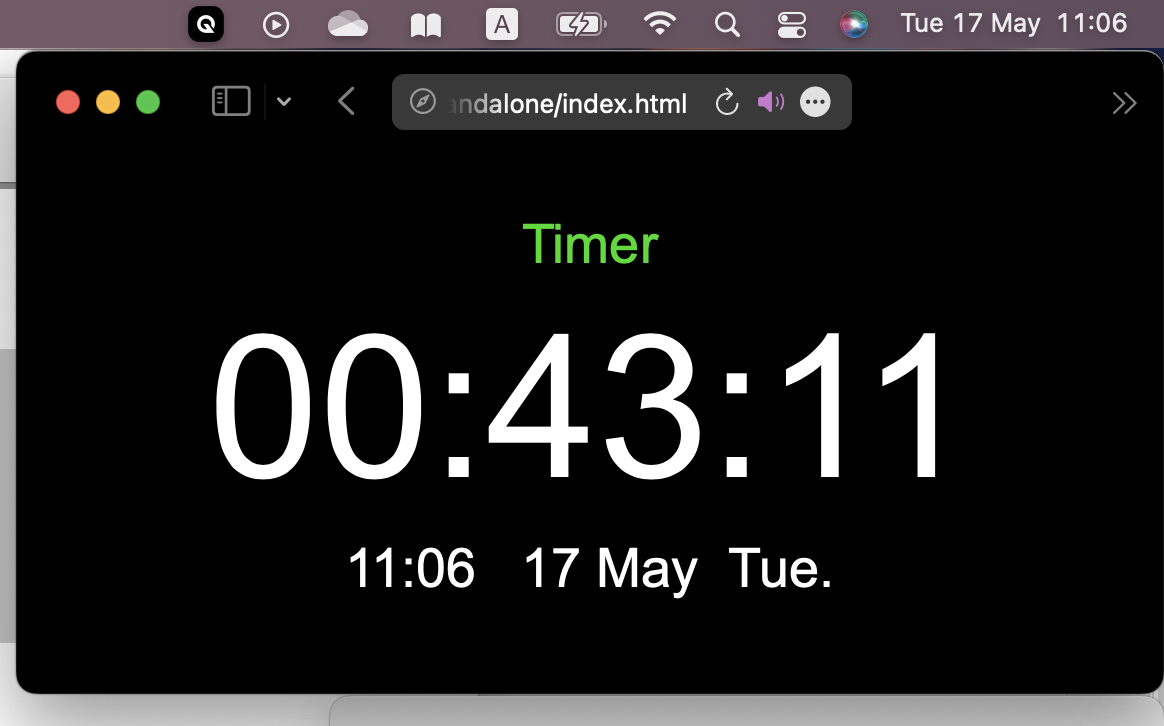
If you still have too much time at the end of the exam, I recommend you to take a rest for a few minutes and then read and check each question very carefully.
You also need to check the Mark Scheme after finishing a paper because you need to know how are papers marked and what types of answers are expected.
Explore More Study Tips
These are my methodologies and suggestions to get 6A* 1A in my IGCSE exams. I hope you can study productively and diligently and get your desired results with my suggestions.
More useful study techniques and habits are available on my website. You can Explore More Study Tips if you want.
If you like this article, please drop a 'like' thumb up below.
You can share and recommend this article to your friends and classmates if you wish, and write comments below about your feelings, questions and your school life.
Follow my social media to learn more about my latest information.
Instagram/Pinterest: @kenstudyjourney
Subscribe to my email newsletter if you need to receive my latest articles and news.






